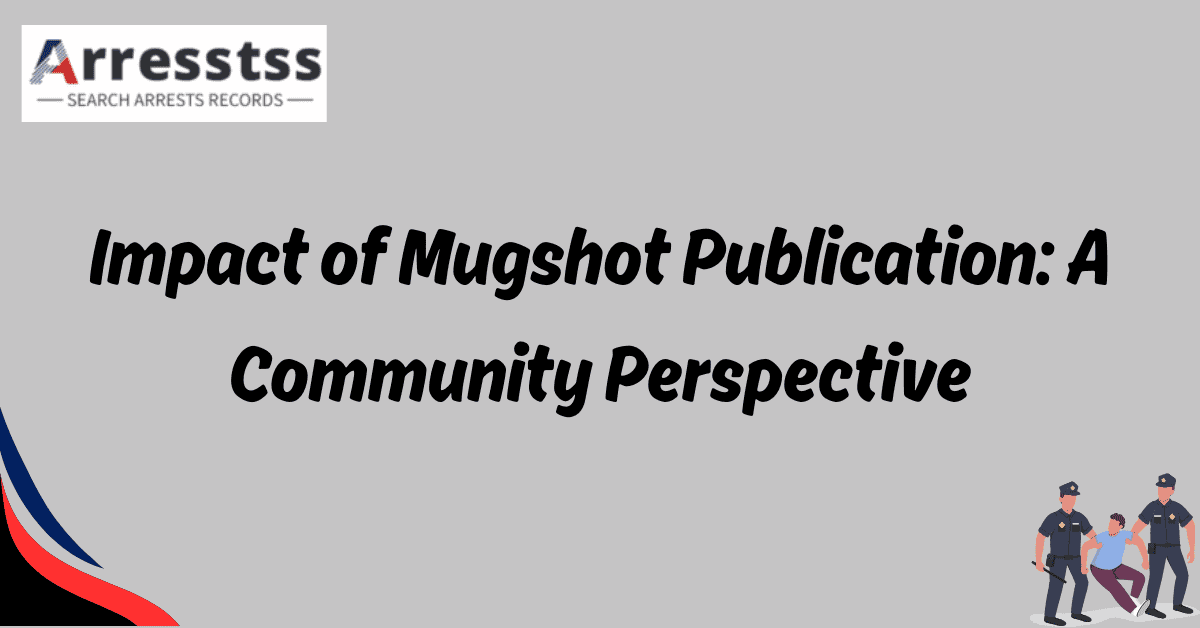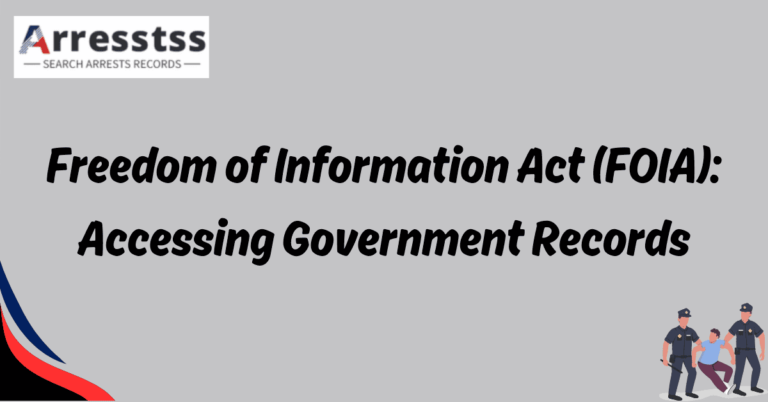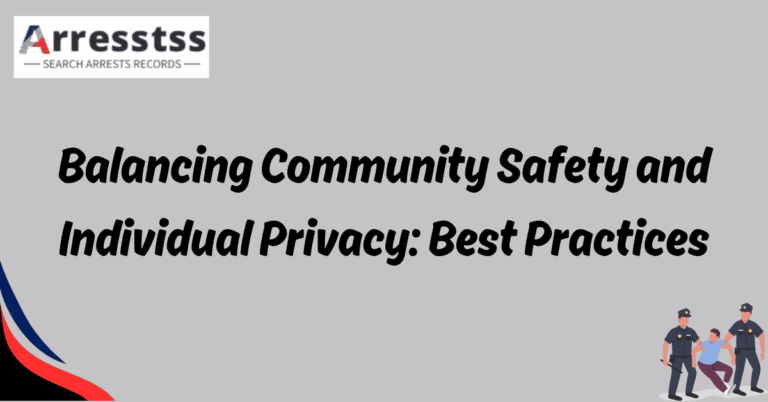Impact of Mugshot Publication: A Community Perspective
In the realm of criminal justice, the dissemination of mugshots holds a multifaceted impact, delving beyond the confines of legal documentation to profoundly influence local communities. As the stark images of individuals in the throes of legal proceedings are made public, a ripple effect traverses the community landscape, weaving intricate narratives of stigma and social consequence. The publication of mugshots transcends the boundaries of law enforcement practices, shaping public perceptions and community dynamics in ways that extend far beyond the immediate confines of the judicial system.
Impact of Mugshot Publication on Privacy
Mugshot publication has become increasingly controversial in recent years, as it raises significant privacy concerns. When booking photos are made publicly available, individuals who have been arrested can experience a violation of their privacy rights. This practice exposes their personal information and images to the public, potentially causing embarrassment, stigma, and even damage to their reputation.
Privacy is a fundamental right that should be protected, and the publication of mugshots challenges this principle. By making these images easily accessible, individuals may be unfairly judged by the public, even if they have not been convicted of a crime. This can have long-lasting effects on their personal and professional lives, as potential employers, landlords, or even acquaintances may form negative opinions based solely on the publication of their mugshot.
Furthermore, mugshot publications can have severe consequences for individuals and their families. The internet has a long memory, and once a mugshot is published online, it can be virtually impossible to remove completely. This means that individuals may be haunted by their arrest record indefinitely, even if charges were dropped or they were found not guilty. The constant reminder of a past arrest can be emotionally distressing and hinder their ability to move forward and reintegrate into society.
Fairness Debate Surrounding Mugshot Publication
Another aspect of the mugshot publication controversy is the question of fairness. Critics argue that making booking photos public before an individual has been convicted goes against the principle of “innocent until proven guilty.” This practice can lead to preconceived judgments and assumptions about a person’s guilt, potentially influencing the outcome of their case and impeding their right to a fair trial.
Moreover, the impact of mugshot publication is not equal for all individuals. Marginalized communities, such as people of color or those from low-income backgrounds, may be disproportionately affected by the negative consequences of having their mugshots publicly available. This perpetuates existing social inequalities and highlights the need for a fairer and more equitable approach to the publication of arrest records.
Broader Implications for Society
While the impact of mugshot publication extends to individuals, it also has broader implications for society as a whole. The availability of mugshots online can contribute to a culture of public shaming and vigilantism. It encourages the public to pass judgment on individuals based solely on their arrest record, without considering the circumstances surrounding their case or the potential for rehabilitation.
Additionally, the widespread publication of mugshots can perpetuate stereotypes and reinforce negative perceptions about certain communities. This can further marginalize already disadvantaged groups and hinder efforts towards social justice and inclusivity.
It is crucial to examine the various aspects of the mugshot publication issue to fully understand its significance. By doing so, we can work towards finding solutions that respect privacy, promote fairness, and consider the broader implications for individuals and society. Only through thoughtful discussions and informed decision-making can we address the complexities of this contentious issue and strive for a more just and compassionate society.
FAQ’s
What is a mugshot publication?
Mugshot publication refers to the practice of making booking photos, taken during the arrest process, publicly available. These photos are often obtained from police departments and are then shared through various mediums, such as online mugshot websites, social media platforms, and news outlets.
The purpose of mugshot publication is to provide transparency and allow the public to access information about arrests and individuals who have been taken into custody.
However, the accessibility and widespread dissemination of mugshots have raised concerns about privacy, fairness, and the potential negative impact on individuals and their communities.
It is essential to understand the various perspectives on this issue and consider its implications carefully.
Why is mugshot publication a contentious issue?
Mugshot publication has become a contentious issue due to its potential negative consequences and implications for individuals who have been arrested.
One of the primary concerns is the violation of privacy. Mugshots are often publicly available even if the charges are dropped, leading to potential reputational damage and stigmatization.
Furthermore, mugshot publications can perpetuate biases and stereotypes, as individuals’ images are displayed without context or any information about the outcome of their cases.
Moreover, the commercialization of mugshots, where websites charge individuals for their removal, has also raised ethical questions and sparked public outrage.
These factors contribute to the ongoing debates and discussions surrounding mugshot publication.
The impact of mugshot publications on individuals can be severe and long-lasting. One of the most significant consequences is the potential damage to their reputation and personal lives.
When mugshots are easily accessible online, individuals may face difficulties in finding employment, securing housing, or even establishing relationships. The stigma associated with an arrest, regardless of the outcome, can have long-term consequences on various aspects of their lives.
Additionally, mugshot publications can lead to emotional distress, embarrassment, and a sense of shame for individuals and their families.
It is crucial to recognize the potential harm caused by the publication of mugshots and consider measures to mitigate its negative effects.
How does mugshot publication impact communities?
The impact of mugshot publication extends beyond individuals and affects communities as a whole.
One of the significant consequences is the perpetuation of stereotypes and biases. When mugshots are widely available without any context or information about the outcome of cases, it can contribute to the stigmatization of certain groups or communities.
Furthermore, the commercialization of mugshots creates a profit-driven industry that thrives on the misfortunes of individuals. This can lead to the exploitation of vulnerable populations and perpetuate systemic inequalities.
Moreover, the fear of having one’s mugshot published can discourage individuals from reporting crimes or cooperating with law enforcement, ultimately undermining community safety.
Considering the broader impact on communities is crucial when discussing the issue of mugshot publication.
Several potential solutions and alternatives to mugshot publication have been proposed to address the concerns surrounding this practice.
One approach is to restrict the accessibility of mugshots, making them available only to law enforcement agencies or individuals directly involved in the legal proceedings. This would help protect individuals’ privacy and prevent the commercialization of mugshots.
Another solution is to implement laws and regulations that require the removal of mugshots from online platforms if the charges are dropped or the individual is acquitted. This would ensure that individuals are not unfairly stigmatized by their arrest records.
Furthermore, promoting a more balanced and responsible media coverage of arrests can help prevent the perpetuation of biases and stereotypes.
Considering these alternatives and implementing appropriate measures can contribute to a fairer and more equitable approach to handling mugshots.







